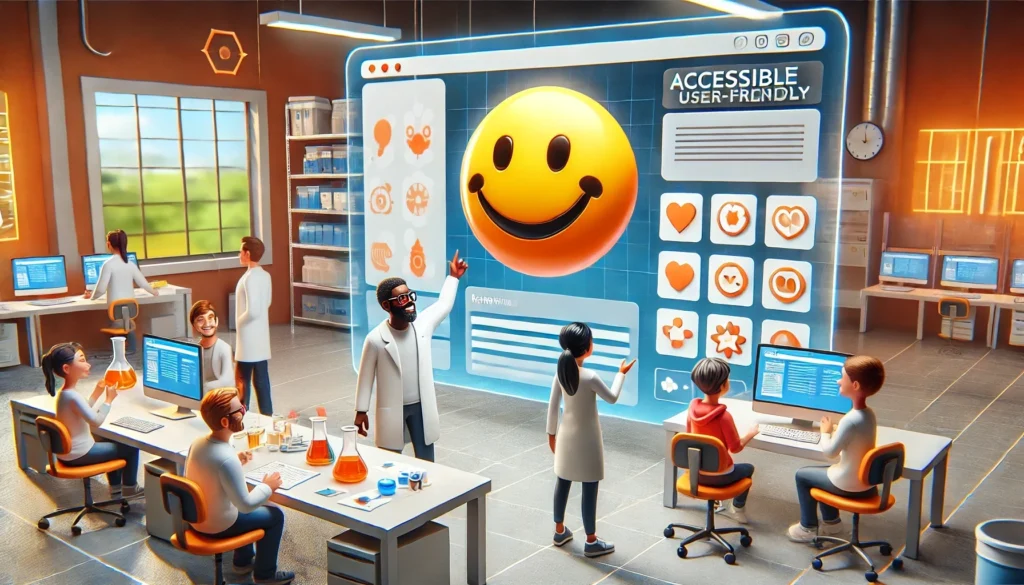Table of Contents
Website Development plays a crucial role in our service offering at Growthlabs. As a Digital Marketing Agency, we can provide a unique perspective on the future of website development, particularly in how we believe the future of web development will intersect with and change SEO and Digital Marketing strategies.
Read our in-depth analysis in The State of B2B Websites 2025 to learn how speed, SEO, and user experience affect lead generation.
In this article, we highlight the key considerations businesses should utilise to remain competitive in the constantly evolving digital landscape now and in the future.
Increased Focus on User Experience (UX) and Personalisation
- Personalised Experiences: Websites will increasingly need to deliver personalised content to users based on their behaviour, preferences, and past interactions. At present, this is being driven forward by e-commerce brands. This trend is flourishing and moving to other industry spaces. Personalisation will involve using advanced data analytics and AI-driven content recommendation systems to drive personalised website content; industry data shows that 71 percent of consumers currently expect companies to deliver personalised interactions.
- Micro-Interactions: Small, interactive moments on websites (like hovers, scroll effects, and animations) will become more sophisticated to enhance user engagement and satisfaction. Implementing interactive elements and animations can significantly improve the user experience, encouraging consumers to choose your brand over competitors with less polished website designs.
Mobile-First Development
- Mobile Optimisation: As of 2024, 60.67% of website traffic comes from Mobile Devices; as a result, web development will begin to prioritise mobile-first design and development, ensuring fast mobile loading times, intuitive navigation, and responsive designs.
- Lightweight Mobile Experiences: Whilst, as previously mentioned, micro-interactions will be necessary, in mobile-first designs, developers will use efficient code and minimal resources to ensure that these interactions enhance the experience without slowing down the site or app, which is critical for maintaining SEO rankings and user retention.
- Gesture-Based Navigation: As mobile-first design and development evolve, we will see more sophisticated gestures—such as swipes, pinches, and long presses—enhanced by micro-interactions. These gestures, paired with responsive animations, will help users easily navigate complex mobile interfaces, improving overall satisfaction and website UX.

Technical SEO Evolution
- Core Web Vitals and Page Experience: Google’s focus on Core Web Vitals will push web developers to prioritise speed, interactivity, and visual stability, directly impacting SEO rankings. It is more important now than ever to have a fast and functional website, as confirmed by Google.
“We believe this will contribute to business success on the web as users grow more engaged and can transact with less friction.” – Google.
- Schema Markup: As search engines evolve, schema markup will be increasingly crucial for improving visibility and click-through rates. This comes as search results become more dynamic and interactive.
- Importance Of Page Experience As A Rank Factor: Google has stated that they treat page experience as a ranking factor. Developers must work closely with SEO teams to use tools that crawl and analyse websites for technical issues like broken links, duplicate content, missing meta tags, and schema errors.
“Google’s core ranking systems look to reward content that provides a good page experience.” – Google
Voice Search Optimisation
- Voice Search Is Rising: On less of a technical and more of a content SEO note, currently, 27% of the global population use voice search on mobile and 20% of searches done on the Google app are now done by voice. By nature, voice queries tend to be longer and more conversational than text searches. SEO strategies must adapt by focusing on long-tail keywords, natural language processing, and optimising content to answer questions directly.
- Local SEO and Voice Search: Voice searches are often local in nature, with users asking for information about nearby businesses or services. It is important to ensure that your website and Google My Business listings ensure consistent NAP information (Name, Address and Phone Number) to leverage the rising influence of voice searches.

URL Structure and Site Architecture
- Logical and Clean URL Structures: A well-structured URL hierarchy is fundamental to user experience and SEO. Developers must ensure that URLs are clean, descriptive, and follow a logical structure that reflects the website’s content hierarchy.
- Internal Linking and Navigation: Effective internal linking is crucial for spreading link equity across a site and helping users navigate. Having an effective and informative site link and navigation structure would improve users’ ability to navigate the site and search engines to crawl and dictate authority to the site properly.
Accessible Web Development and User Friendly Platforms
- Accessibility: WordPress, being our platform of choice, empowers many users to make edits, create posts and perform functions on websites without needing deep technical expertise. The popularity of this practice is growing. We make an effort to make our created websites usable from an end-user point of view and a novice manager point of view.
- Rapid Prototyping: The benefit of low-code and user friendly platforms is the empowerment of testing more agile and responsive strategies without using a high amount of development time.

Our Predictions On The Future Of Web Development From 2024 Onwards -Summarised
The future of web development from a digital marketing perspective will be centred around creating highly personalised, engaging, and secure user experiences, the internet has moved away from static experiences to alive and interactable ones. Marketers and developers will need to collaborate closely, leveraging advanced technologies like AI, and machine learning.
Developers will need to be mindful of emerging trends in terms of mobile usage, voice search, and Google’s focus on core web vitals. The ability to adapt to these changes and integrate them effectively into web development strategies will be key to staying competitive in the digital landscape.
